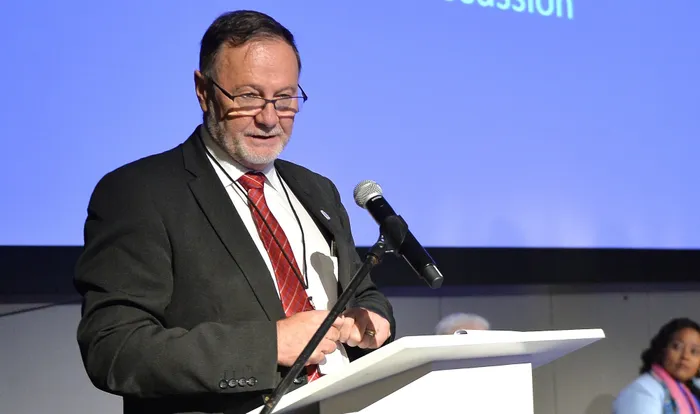
Anton Bredell, Western Cape’s local government and environmental affairs minister, backing a bold R32 million push to upgrade ageing water infrastructure and secure the province’s future supply.
Image: Independent Newspapers Archive
In response to mounting climate pressures and growing demands on municipal services, the Western Cape Government has committed R32 million in the 2025/26 financial year to assist local municipalities with critical water and wastewater infrastructure upgrades.
Western Cape Minister for Local Government, Environmental Affairs and Development Planning, Anton Bredell, announced the allocation during a panel discussion on food and water security at the Hamburg Sustainability Conference on June 2.
Bredell painted a stark picture of the challenges facing the province.
“We also have the added complexity of poverty, inequality and a fast-growing population,” he said.
“These socio-economic dynamics make it very challenging to plan, budget and construct the water and wastewater infrastructure we need to provide future water security in our region.”
The R32 million allocation for the 2025/26 financial year will be used to support municipalities as they upgrade and expand critical infrastructure, a move seen as urgent given the province’s limited potential for new bulk water storage facilities.
Bredell said there are only limited opportunities for additional bulk water storage in the Western Cape, and as such, future water security will have to come from improved supply and demand management, alternative sources such as groundwater, the re-use of water, and desalination.
While the Western Cape boasts the lowest per capita water use in the country, at 160 litres per person per day, compared to the national average of 216 litres, much of that water is lost or unaccounted for.
According to Wouter Kriel, spokesperson for Minister Bredell, the Western Cape manages to generate revenue from 70.4% of water supplied to consumers, meaning that 30% of water is either lost in the system, or it was delivered to a consumer without generating any revenue.
"A portion of the non-revenue water is water supplied free of charge to poor and vulnerable residents. This is part of a dignity basket which also includes a set amount of free electricity and other basic municipal services," said Kriel.
Bredell said the current national threshold of free water is no longer realistic.
“Our research on what constitutes water dignity found that the current 6 kilolitres a month per household, as prescribed in South African legislation, is not sufficient, and it should be much higher, at 15 kilolitres per household,” he said.
“These findings raise serious questions on our approach to water management in South Africa and especially in our local governments where rate payers are being pushed to pay more for services to also help subsidise the dignity basket to an increasing number of indigent households.”
Kriel confirmed the provincial support, saying; “The Western Cape Government is budgeting R32 million for the 2025/26 financial year to support municipalities with water and wastewater infrastructure projects.”
IOL News
Get your news on the go, click here to join the IOL News WhatsApp channel.
Related Topics:
